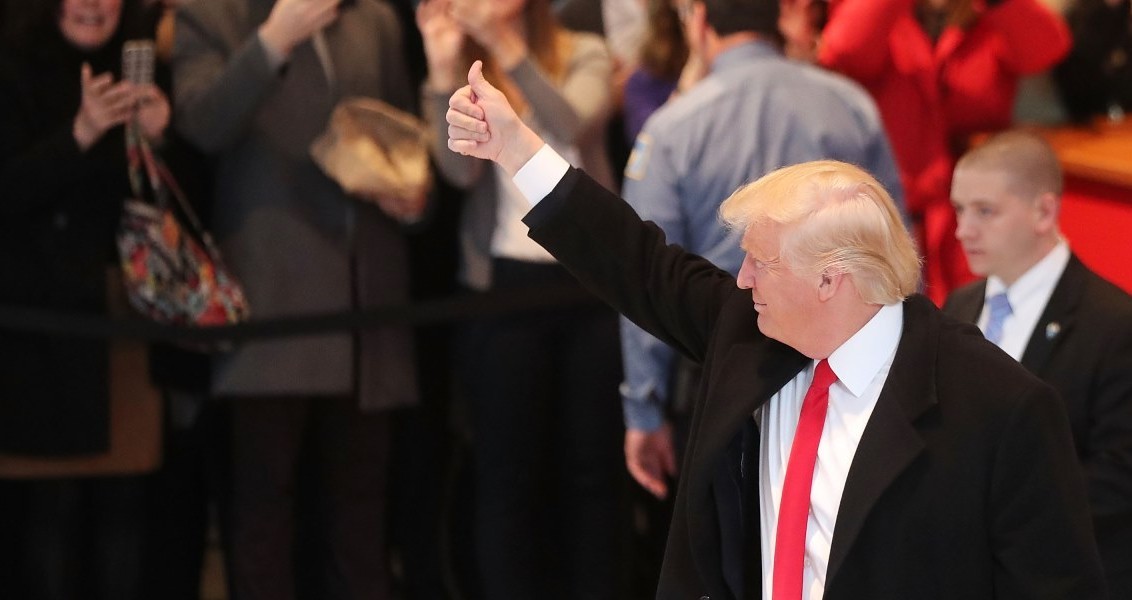A few weeks ago in this column I wrote that one of the most significant determinants of U.S. foreign policy may be the current tension between different institutions in Washington and their relation with President-elect Donald Trump. Over the last week we have witnessed important indicators of possible disarray in the relations of the incoming administration with several different makers of U.S. foreign policy. Although this is not new and although many administrations in the U.S. have been through problems of interagency disputes and faced problems of coordination with the different levels of bureaucracy before, this time what we are seeing may be quite different.
First of all, the confirmation hearings for senior positions in the incoming administration last week demonstrated there may be a difference of opinion among members of the administration. Particularly in regards to the most controversial issue, the relations with Russia, we saw that the attitudes and approaches of the different actors are quite distinct. Despite the insistence of the president-elect to work with Russia and his refusal to criticize the Russian government directly, key members of his foreign policy team, including Secretary of State Rex Tillerson, Secretary of Defense James Mattis and the director of the CIA Mike Pompeo, all took quite tough positions against Russia during the confirmation hearings. All of them more or less agree that Russia represents some threat to the U.S. and its allies.
It is true that they were responding to the questions of senators who held more skeptical views about Russia than Trump and it is also true the final decision maker will be the president in the formulation of the foreign and security policies of the state. The views and opinions of the nominated officials may never materialize at the end of the day. However, for some, the real problem during these hearings was that during the hearing of the secretary of state nominee it became clear he had not had a very detailed conversation with the president-elect about the U.S. policy toward Russia.
This reminds many of the presidential debates during the election campaign when Trump admitted publicly that he and his VP pick did not have a comprehensive conversation about Syria policy and thus disagreed among themselves. If the number of these public revelations showing disagreement among the members of the administration increases in the coming months, it will constitute an additional pressure for the administration. In the implementation of different policies, these disagreements can generate problems if they are not contained or coordinated. After these hearings Trump tweeted: “All of my Cabinet nominees are looking good and doing a great job. I want them to be themselves and express their own thoughts, not mine!” However, the truth is that too many such debates may cost precious time and energy for the new administration.
Secondly. there is a question of how to fix the problems between some bureaucratic agencies and Trump in the coming months. Since the beginning of his presidential campaign, Trump has been very skeptical about the assessments from the U.S. intelligence community and harshly criticized it publicly during presidential debates. In regards to the allegations of Russian hacking to influence election results, Trump has continued taking a tough line against the intelligence community. It is true that after the briefing he received this week, Trump’s tone slightly changed, but it is important to realize that he and his administration may have different disagreements with different agencies in the coming weeks and months. It will be interesting to see what kind of relationship the administration will develop with these bodies of government and whether it can establish an effective working relationship despite the disagreements.
Even before the inauguration has taken place, then, there seems to be clear challenges ahead. And even after the transition, we may have to deal with these challenges more often and with an increased intensity due to differences of opinion and a persistence of skepticism. In regards to foreign and security policies especially, this might be one of the most important periods in decades.
[Daily Sabah, January 14, 2017]

